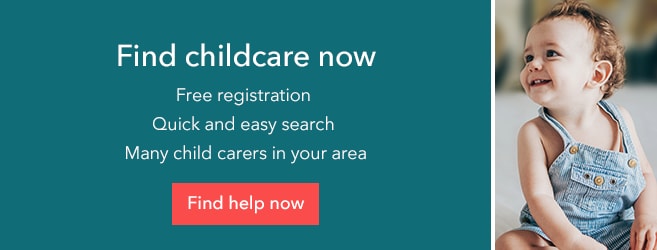You know your body will change after your pregnancy, but no one ever tells you just how much. This ever-changing post-baby body can be a bit alarming if you don’t know what you’re dealing with.
There are so many hormonal changes after you give birth, that the changes happen rather quickly. Keep in mind that these changes aren’t forever. Be kind to yourself and know that a lot of these changes are temporary. Love your new body; it just did something really amazing. Coping with postpartum body changes means one thing — being gentle with yourself!
Here are 8 changes to your post-baby body that every mother should know:
1. Growing and engorged breasts
Your breasts undergo one of the most common post-baby body changes. Whether or not you breastfeed, this is a body change that all postpartum women will have to deal with. To ease discomfort, keep a couple of ice packs in the freezer. Then, when you’re feeling a bit tender, lie down with them on your chest.
2. Belly pooch
Diastasis recti (abdominal separation) is a common condition for women’s bodies after having a baby. The abdominal muscles tend to separate from the connective tissue at the mid-line of the body due to the pressure of your growing baby.
As you can probably imagine, your abdominal muscles take a lot of stress, but it can also happen within the first 12 weeks of your postpartum period, as well. Some of the symptoms you may experience are chronic back pain, painful intercourse, incontinence and in extreme cases, organ prolapse.
3. Stretch marks
With a growing baby and weight gain, stretch marks can happen almost anywhere on your body. Certain creams such as shea or coca butter can be applied during pregnancy to help prevent them. Even once you have stretch marks, the creams can help to diminish the appearance, but they may not disappear completely.
4. Incontinence
Though it doesn’t happen to everyone, a little incontinence is normal in a post-baby body. It happens because during birth your nerves can be temporarily numb and so you won’t always feel the urge to pee. This is only a temporary issue however; the nerves regenerate quickly. This can be a problem even in women who had a Caesarean section: surgery can cause temporary interruption of the nerve fibres around the bladder
5. Wide feet
Edema (swelling) in the feet occurs after birth due to your contracting uterus. After your delivery, the uterus is squeezing blood into the body. You also may have received IV fluids during your hospital stay. With all that fluid in your body, it has to go somewhere! The swelling will go away within a week or two, but you may find that your shoe size stays larger. In addition, during your pregnancy, your ligaments become loose, causing your feet to widen.
6. Hair loss
A lot of women experience hair loss after pregnancy. After pregnancy, your oestrogen levels plummet, causing your hair to fall out. However, don’t worry – over time your levels will normalise again and your hair will return to how it once was.
7. Dry skin and itching
Postpartum dry skin and itch doesn’t happen to everyone, but if it does, it can be frustrating. Stay hydrated, inside and out. Drinking lots of water and treating your skin to a daily moisturiser of coconut oil can really help. Since it has also to do with your hormone levels, be sure to see your doctor as they can help level out your hormones with various types of birth control options.
8. Hemorrhoids
Hemorrhoids are very common in a post-baby body due to the pushing and delivery. To relieve hemorrhoid pain, apply cold compresses, soak in a sitz bath and use medicated wipes after bowel movements. Consult your doctor if you don’t see improvement within a few weeks.
Read Next: 15 Natural Ways to Induce Labour
Read Next: 8 Ways to Manage Sandwich Generation Stress
Read Next: 10 Marriage Problems New Parents Face

